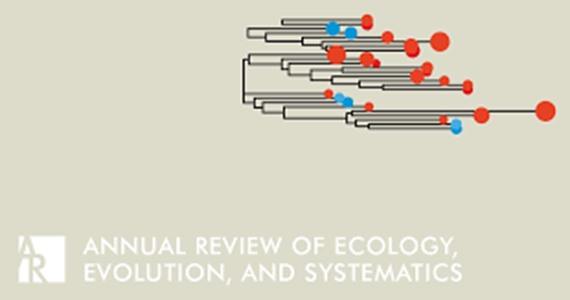冰川退缩后生态群落的动态变化
IF 11.2
1区 生物学
Q1 ECOLOGY
Annual Review of Ecology, Evolution, and Systematics
Pub Date : 2021-08-31
DOI:10.1146/annurev-ecolsys-010521-040017
引用次数: 31
摘要
冰川正在全球范围内退缩,由此产生的无冰区为了解物种殖民模式、群落形成和动态提供了一个实验系统。在过去的几年里,由于方法创新和生态学理论的整合,我们对冰川退缩后生物殖民的理解取得了重大进展。最近的实证研究已经证明了多种因素如何加速或减缓殖民化的速度,并帮助科学家建立了描述群落结构时空变化的理论模型。人们越来越认识到,不同的过程(如冰川退缩以来的时间、地表过程的开始或中断、非生物因素、扩散、生物相互作用)如何相互作用,从而形成群落,并最终通过演代形成其功能结构。在这里,我们研究了这些研究如何解决关于群落动态的关键理论问题,并展示了经典方法如何越来越多地与环境DNA元条形码和功能特征分析相结合,以记录多营养群落的形成,彻底改变了我们对冰川退缩后发生的生物过程的理解。预计《生态、进化和分类学年度评论》第52卷的最终在线出版日期为2021年11月。修订后的估计数请参阅http://www.annualreviews.org/page/journal/pubdates。本文章由计算机程序翻译,如有差异,请以英文原文为准。
Dynamics of Ecological Communities Following Current Retreat of Glaciers
Glaciers are retreating globally, and the resulting ice-free areas provide an experimental system for understanding species colonization patterns, community formation, and dynamics. The last several years have seen crucial advances in our understanding of biotic colonization after glacier retreats, resulting from the integration of methodological innovations and ecological theories. Recent empirical studies have demonstrated how multiple factors can speed up or slow down the velocity of colonization and have helped scientists develop theoretical models that describe spatiotemporal changes in community structure. There is a growing awareness of how different processes (e.g., time since glacier retreat, onset or interruption of surface processes, abiotic factors, dispersal, biotic interactions) interact to shape community formation and, ultimately, their functional structure through succession. Here, we examine how these studies address key theoretical questions about community dynamics and show how classical approaches are increasingly being combined with environmental DNA metabarcoding and functional trait analysis to document the formation of multitrophic communities, revolutionizing our understanding of the biotic processes that occur following glacier retreat. Expected final online publication date for the Annual Review of Ecology, Evolution, and Systematics, Volume 52 is November 2021. Please see http://www.annualreviews.org/page/journal/pubdates for revised estimates.
求助全文
通过发布文献求助,成功后即可免费获取论文全文。
去求助
来源期刊
CiteScore
19.90
自引率
1.70%
发文量
21
期刊介绍:
The Annual Review of Ecology, Evolution, and Systematics is a scholarly publication that has been in circulation since 1970. It focuses on important advancements in the areas of ecology, evolutionary biology, and systematics, with relevance to all forms of life on Earth. The journal features essay reviews that encompass various topics such as phylogeny, speciation, molecular evolution, behavior, evolutionary physiology, population dynamics, ecosystem processes, and applications in invasion biology, conservation, and environmental management. Recently, the current volume of the journal transitioned from a subscription-based model to open access through the Annual Reviews' Subscribe to Open program. Consequently, all articles published in the current volume are now available under a CC BY license.

 求助内容:
求助内容: 应助结果提醒方式:
应助结果提醒方式:


